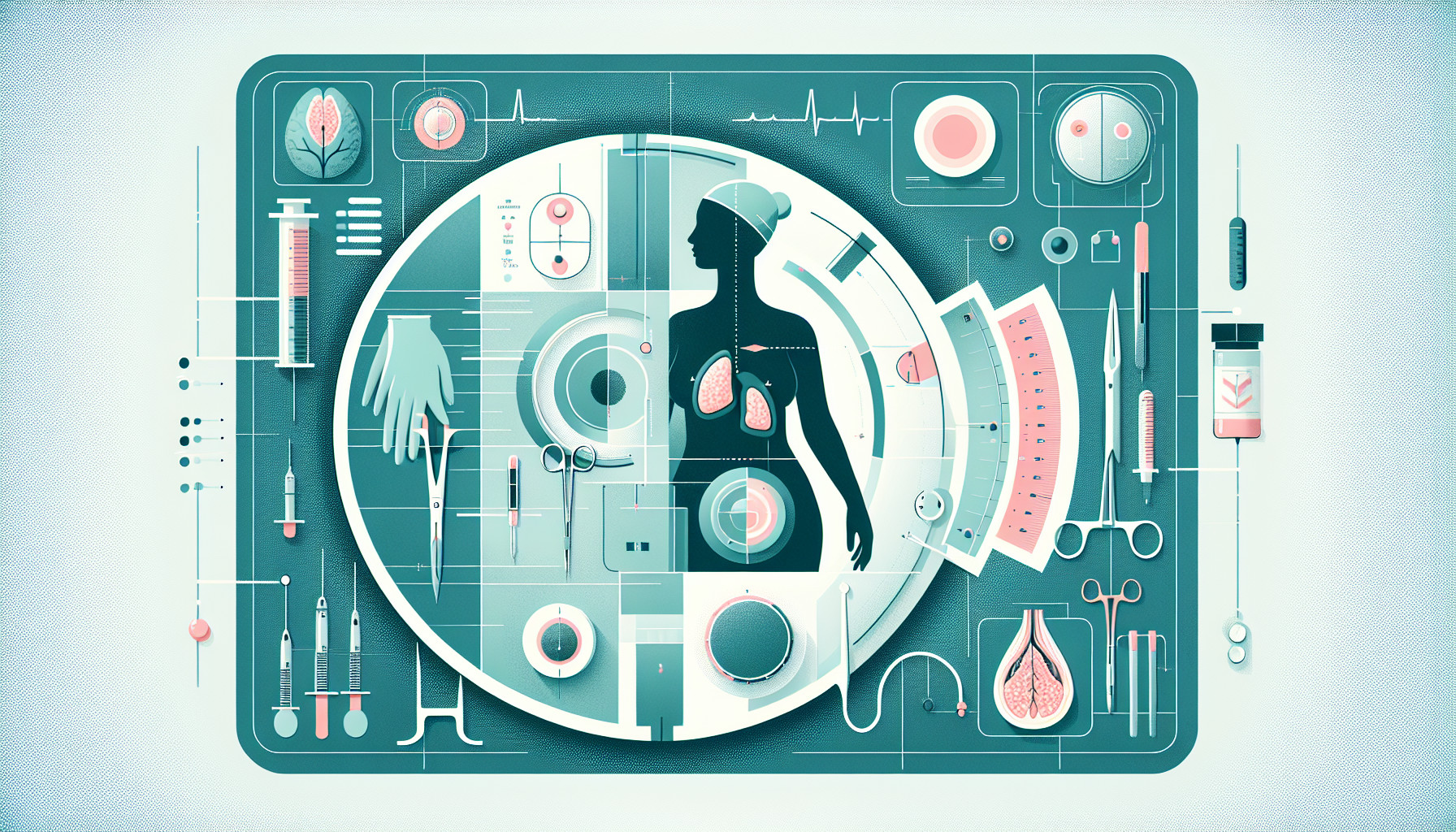Our Summary
This research paper is a review of various studies that assess how women at high risk of developing breast cancer feel about undergoing preventive mastectomies, which are surgeries to remove one or both breasts in order to reduce the risk of developing cancer. The studies were found through databases such as Medline, CINAHL, Embase and PsycInfo, covering the period from 1995 to 2016.
From the 1657 articles the researchers found, they focused on 30 studies. These studies were either surveys (cross-sectional) or looked back at past data (retrospective). The results showed that most women were happy with their decision to have the surgery, and were generally satisfied with how they looked afterwards. However, some women did regret their decision and were unhappy with their physical appearance post-surgery.
The factors that affected women’s satisfaction and regret included complications after the surgery, changes in their body image, psychological distress, and feeling like they didn’t have enough information before the surgery.
The researchers concluded that most women were satisfied with choosing to have a risk-reducing mastectomy, but some did have regrets and were dissatisfied. They suggested that additional research is needed to further explore women’s experiences with these surgeries, given that surgical and clinical practices continue to improve.
The paper suggests that providing women with more pre-surgery preparation, support in making the decision, and ongoing psychological support could help increase satisfaction with this procedure.
FAQs
- What factors are associated with patient satisfaction and regret after risk-reducing mastectomies?
- What are the general levels of satisfaction with risk-reducing mastectomies according to the systematic review?
- What are the suggested practices to increase patient satisfaction with risk-reducing mastectomies?
Doctor’s Tip
A helpful tip a doctor might tell a patient about mastectomy is to discuss their concerns and preferences with their healthcare team before making a decision. It is important for patients to have a clear understanding of the procedure, potential risks and benefits, as well as realistic expectations about the outcome. Additionally, seeking support from mental health professionals and support groups can help patients cope with any emotional challenges they may face before and after the surgery.
Suitable For
Patients who are typically recommended mastectomy include:
- Women at high risk of developing breast cancer, such as those with a strong family history of the disease or carrying a genetic mutation (e.g. BRCA1 or BRCA2).
- Women who have been diagnosed with early-stage breast cancer and are opting for a mastectomy over a lumpectomy.
- Women with a history of previous breast cancer who are at risk of recurrence.
- Patients with large or multiple breast tumors that cannot be effectively treated with other methods.
- Patients with certain types of benign breast conditions that increase their risk of developing breast cancer in the future.
It is important for patients considering mastectomy to have a thorough discussion with their healthcare provider about the risks and benefits of the procedure, as well as potential alternatives. Additionally, patients may benefit from psychological support and counseling to help them navigate the decision-making process and cope with the emotional aspects of undergoing mastectomy.
Timeline
Before mastectomy:
- Patient receives a diagnosis of high risk of developing breast cancer
- Patient discusses treatment options with healthcare providers
- Patient decides to undergo risk-reducing mastectomy
- Patient undergoes pre-operative tests and preparation
- Patient may experience anxiety and uncertainty leading up to the surgery
After mastectomy:
- Patient undergoes the mastectomy surgery
- Patient goes through post-operative recovery and healing process
- Patient may experience physical discomfort and emotional adjustment to body changes
- Patient receives follow-up care and monitoring from healthcare providers
- Patient may experience satisfaction with the decision to undergo mastectomy, but some may also experience regret or dissatisfaction with their appearance
- Factors such as post-operative complications, body image changes, psychological distress, and perceived lack of information can impact patient satisfaction and regret.
What to Ask Your Doctor
- What are the potential risks and complications associated with mastectomy?
- What are the different types of mastectomy procedures available and which one would be most suitable for my individual situation?
- What is the expected recovery time following mastectomy?
- How will mastectomy affect my physical appearance, including scarring and potential changes in breast shape?
- Are there any alternative treatments or procedures available that could achieve similar risk reduction without undergoing mastectomy?
- What are the long-term implications of undergoing mastectomy in terms of breast cancer risk reduction and overall health?
- How will mastectomy impact my daily activities and quality of life?
- What kind of psychological support or counseling is available for patients undergoing mastectomy?
- How often will I need to follow up with my healthcare provider after mastectomy?
- Are there any specific lifestyle changes or precautions I should take following mastectomy?
Reference
Authors: Braude L, Kirsten L, Gilchrist J, Juraskova I. Journal: Patient Educ Couns. 2017 Dec;100(12):2182-2189. doi: 10.1016/j.pec.2017.06.032. Epub 2017 Jul 1. PMID: 28732648
